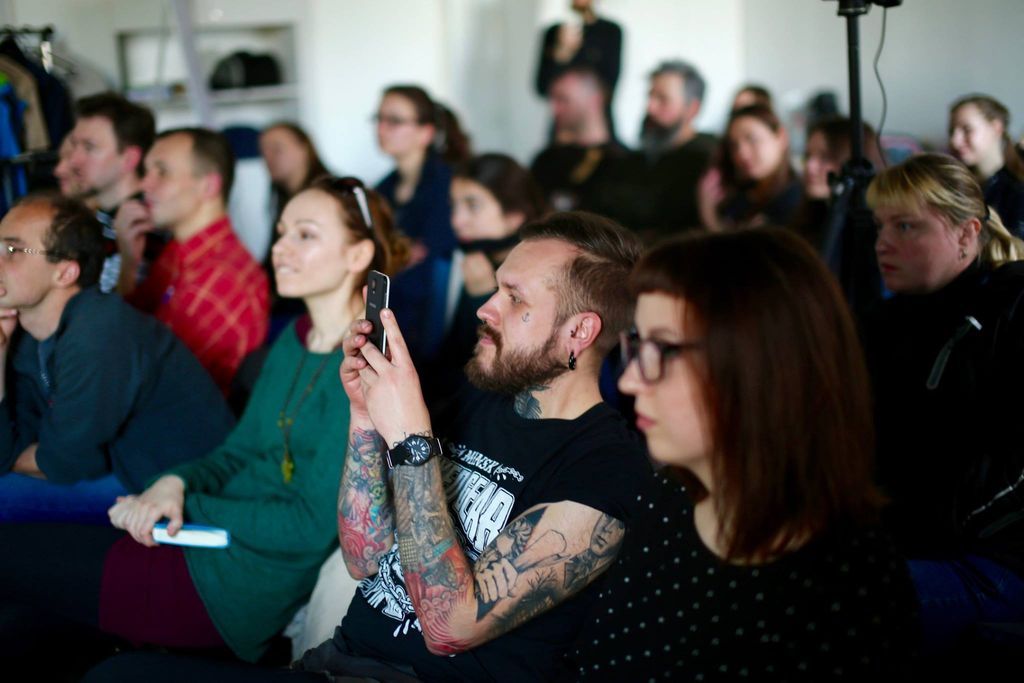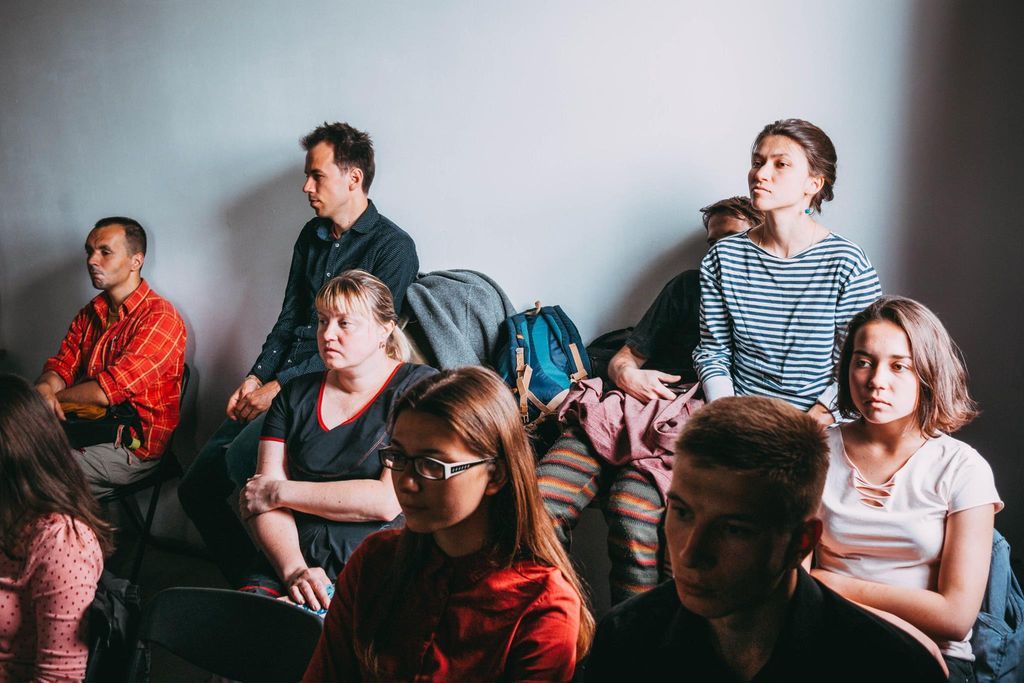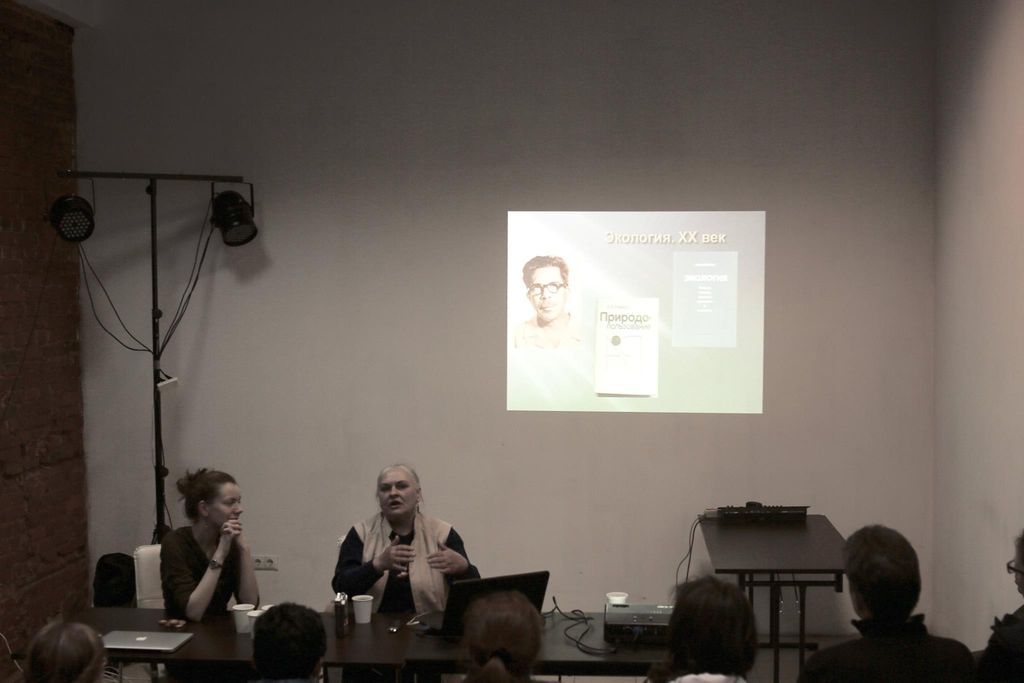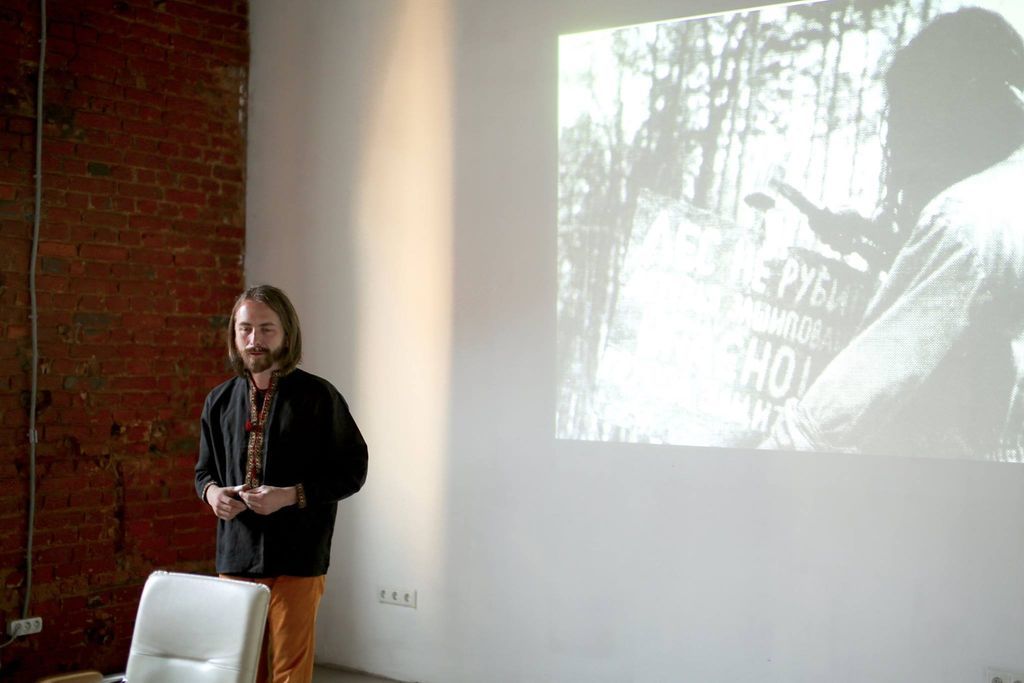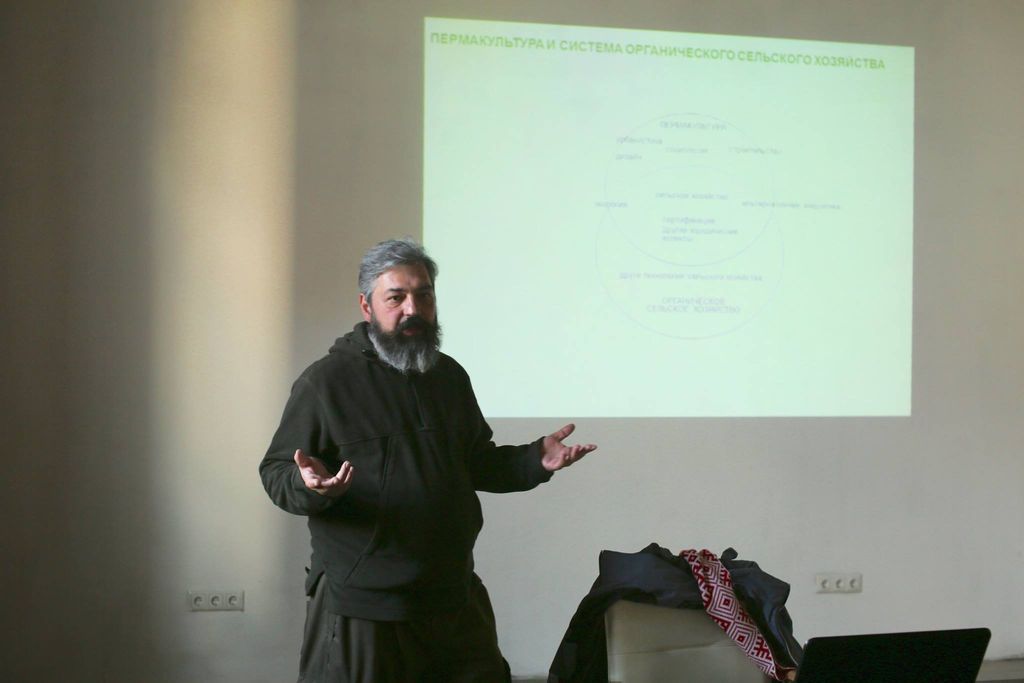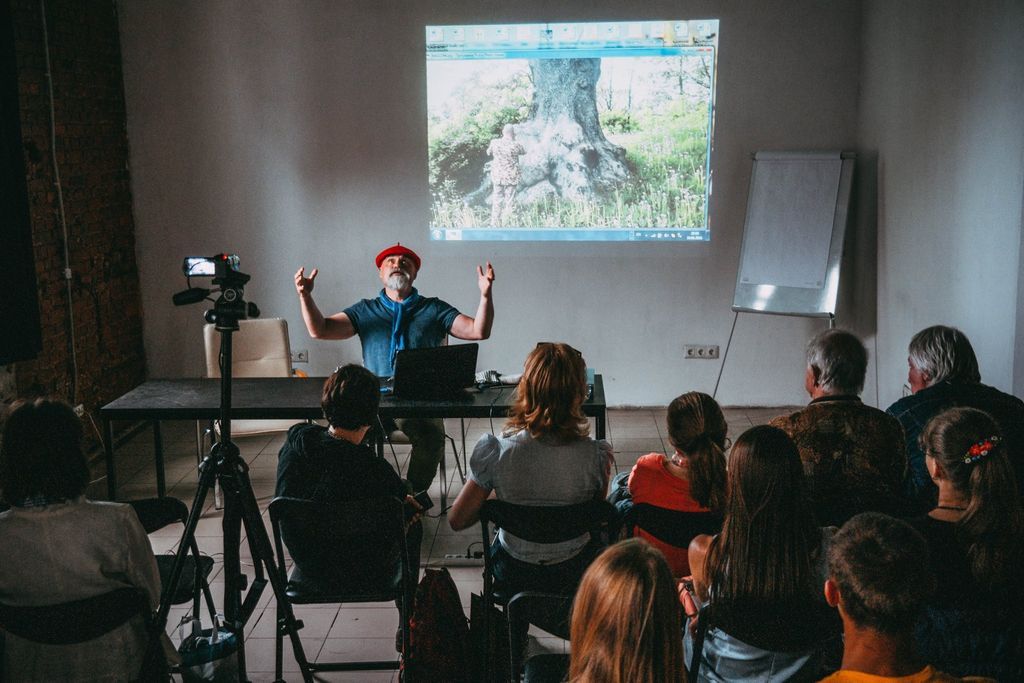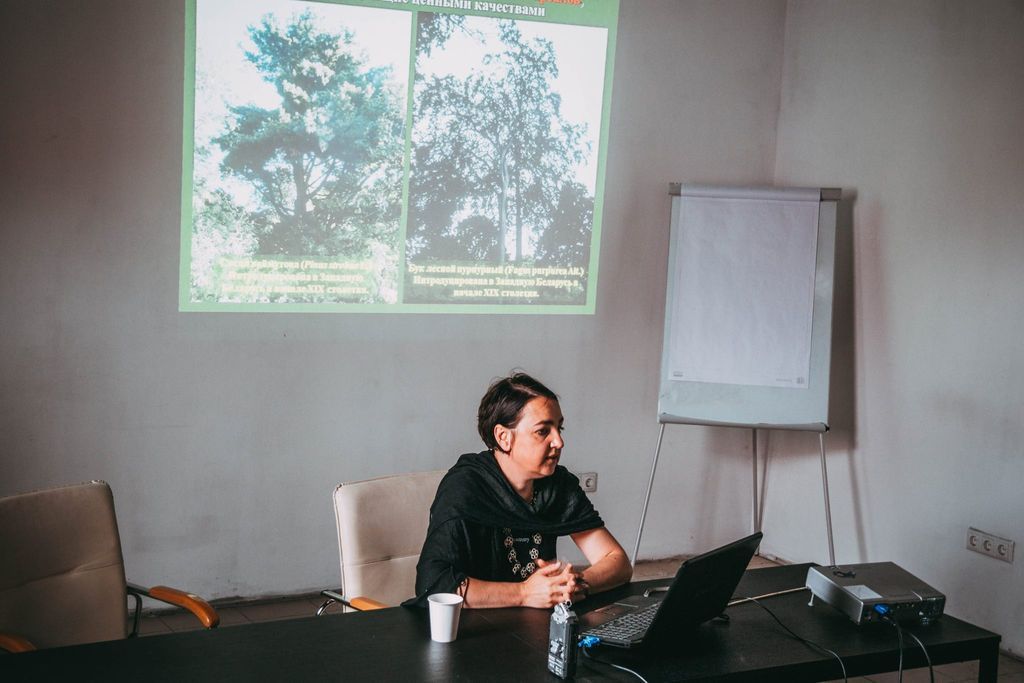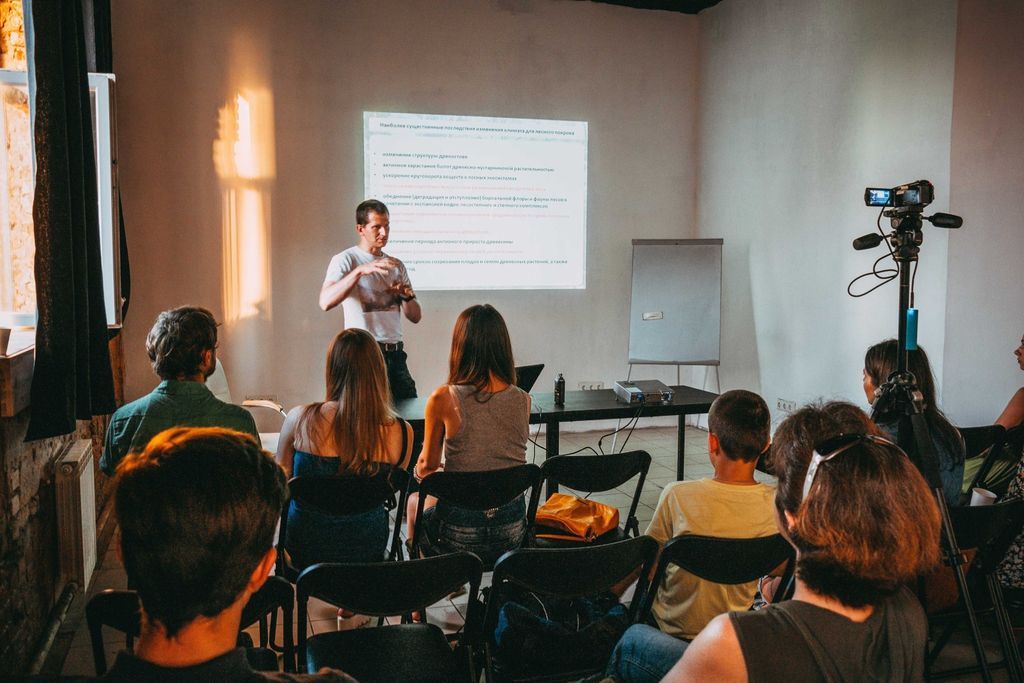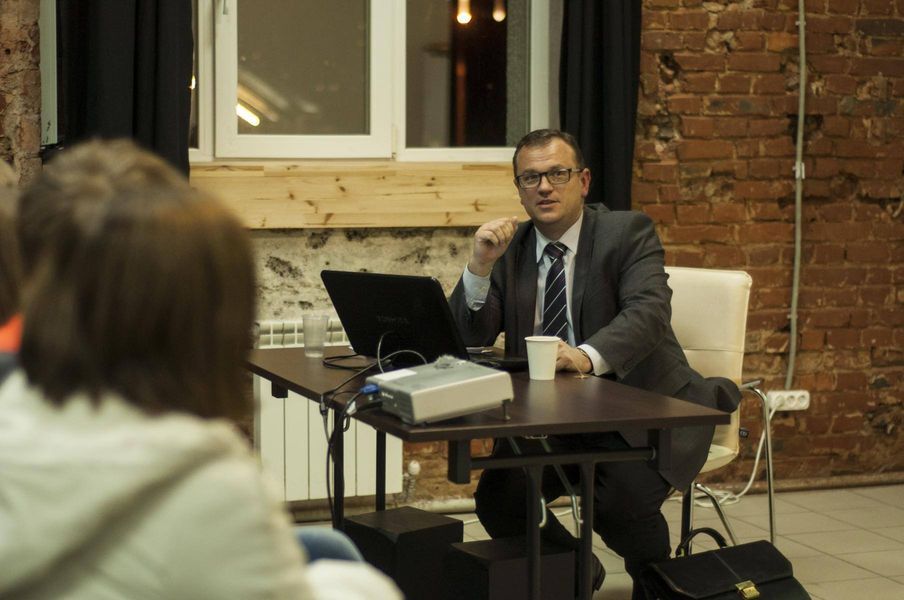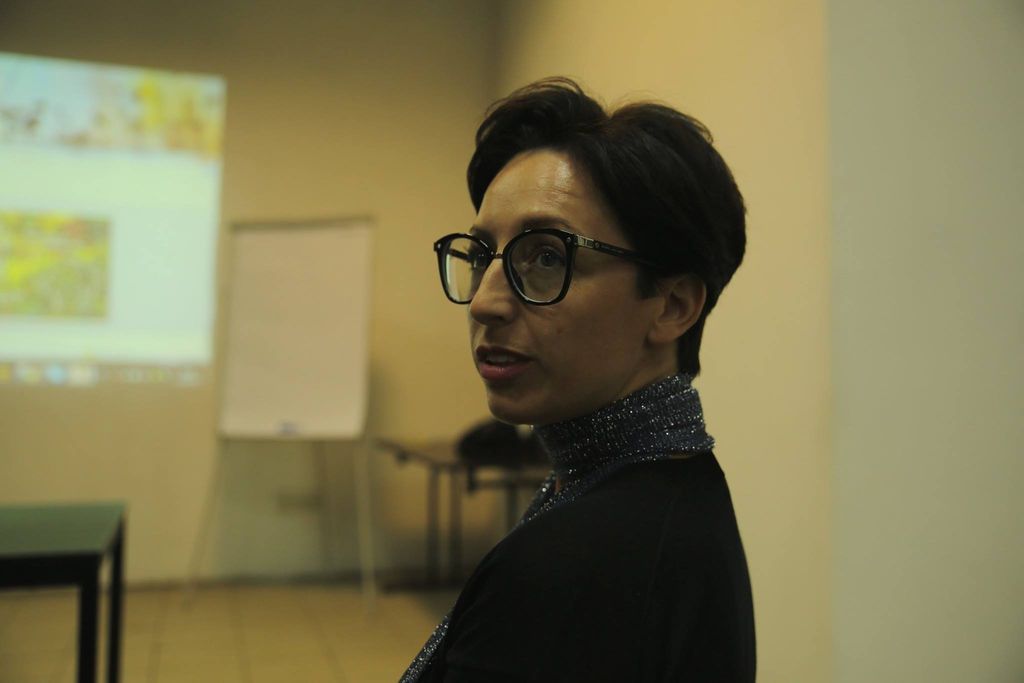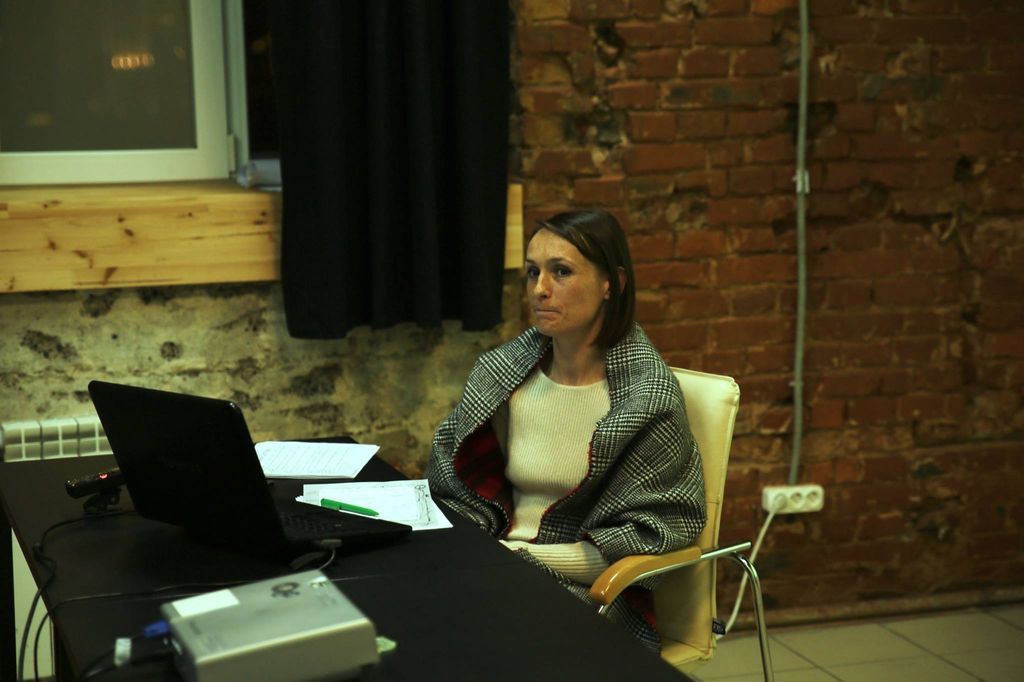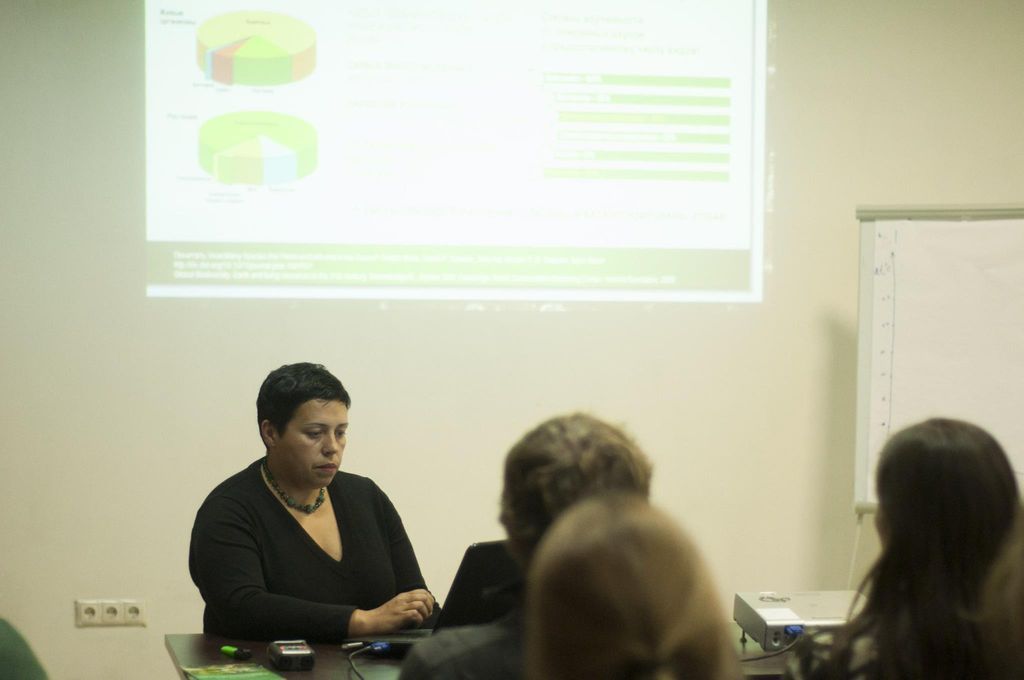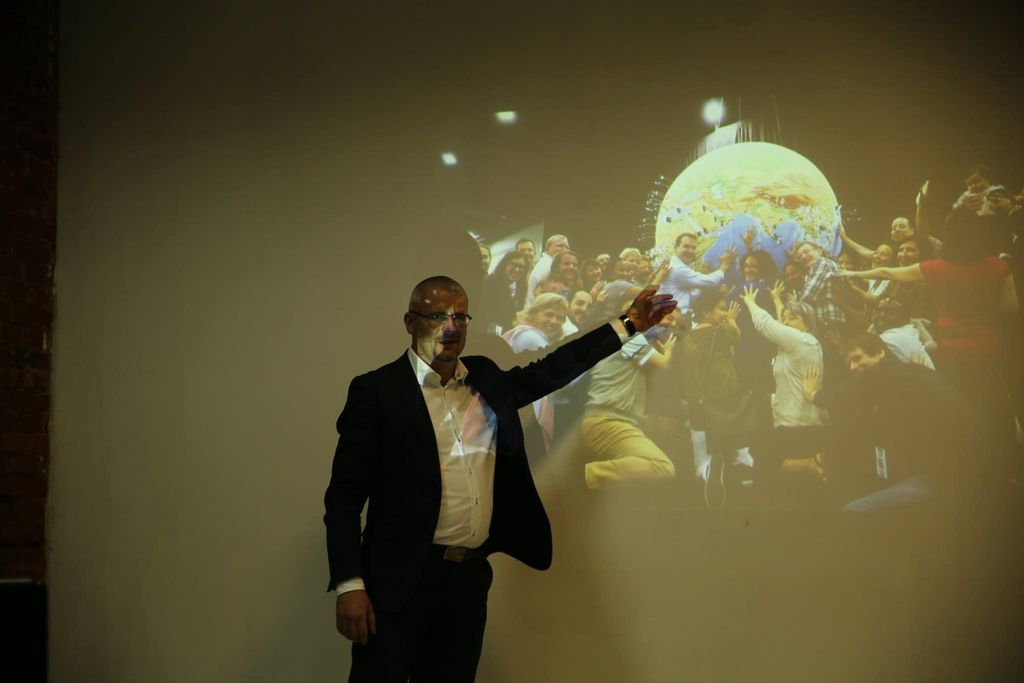School of Wildlife Conservation
- Topic: Ecological education
- Date: 2018-12-10 21:17
The first course was held in 2016 and consisted of eight offline meetings over six months. It was attended by 15 experts from Belarus, Georgia, Ukraine, Estonia, Russia, and more than 150 students. The topics of the lectures ranged from the management of natural resources to biodiversity and wildlife management. We provide answers to these and many other questions at the School of Wildlife Conservation.
Can nature deal with the challenges it faces by itself? What species of animals and plants in Belarus will disappear by the end of the 21st century and is the man responsible for it? Why do people manage specially protected natural areas? Is there a place for ethics in the forest?
For whom?
- Students, biologists, environmentalists, geographers and chemists who want to learn the up-to-date information and to go beyond their university curriculum;
- Environmental activists who want to gain new knowledge from experts;
- Nature enthusiasts who want to understand the environmental processes;
- Anyone who understands the importance of a reasonable interaction of man and nature in the 21st century.
The detailed program of the first course and the recordings of some lectures
§1 Man and Nature: self-determination, worldview, approaches, principles and concepts
- environmentalism: worldview, the modern environmental movement and its leaders;
- ecologism, ecologist, ecologist and ecology: how to deal with all this;
- conservationism: worldview and lessons of practical action in the twentieth century;
- ecological culture
Lecturers
Olga Kaskevich (Belarus), environmentalist, ecological engineer and advocacy expert, coordinator of the Working Group “Wildlife Conservation in Belarus”
Konstantin Chikalov (Belarus), ecological activist, chairman of Bahna;
Inessa Bolotina is an ecologist (Belarus), coordinator of the campaign “Save the Pripyatskiye Oakwoods”.
§2 Nature and nature use. Wildlife and strict protection
- about the differences between the categories “nature” and “nature management” in the ecological cultures of different peoples;
- differences in the processes of studying ecology and environmental management;
- the emergence of the term wilderness and its modern definition;
- what is a reserve and how it relates to the wild nature?
Lecturers
Alexey Vasilyuk (Ukraine), ecologist, deputy chairman of the National Ecological Center;
Zurab Karbelashvili (Georgia), biologist, ecologist, specialist, and consultant in the field of organic agriculture and rural tourism, a well-known teacher of permaculture, the creator of the author’s course and a number of books on organic agriculture. In the past, the coordinator of the agricultural projects of the Foundation “Pro Mestia” (Switzerland) and the training center of the Association “Elkana”, which unites all bio farmers of Georgia;
Valery Brinikh (Russia), public figure, ecologist, head of the Adygei republican branch of the All-Russian Public Organization of Nature Conservation, director of the Institute of Regional Biological Research, in the past was a director in the Daursky Reserve and the Caucasus Reserve, the author of several books on nature reserves.
§3 Monuments of nature and relict trees
- about nature monuments, as a category of specially protected natural territories (PAs)
Lecturers
Igor Korzun (Belarus) – coordinator of the campaign “City Forester”, photographer;
Irina Voznyachuk (Belarus) – Senior Researcher, Institute of Experimental Botany of the National Academy of Sciences of Belarus, Candidate of Biological Sciences.
§4 People and Forests
- people’s dependence on forest resources and the environment;
- population impact on forest ecosystems;
- history of the development of forestry;
- problems of forest degradation;
- government policies to protect forest ecosystems.
Lecturers
Maxim Ermokhin (Belarus) – coordinator of the working group on the development of FSC standards in Belarus, the leading researcher at the Institute of Experimental Botany of the National Academy of Sciences of Belarus.
§5 Biodiversity of natural ecosystems and biotopes
- biodiversity of Belarus;
- various biotopes;
- mechanisms for the conservation of diversity;
Lecturers
Dmitry Grummo (Belarus), Deputy Director for Science and Innovation, Institute of Experimental Botany of the National Academy of Sciences of Belarus, Candidate of Biological Sciences;
Natalia Minchenko (Belarus), former Head of the Ministry of Natural Resources of Belarus responsible for the conservation of biological diversity.
§6 Animals in captivity, different views on the problem. CITES Convention
Lecturers
Tatyana Zheleznova, Consultant of the Department of Biological Diversity of the Department of Biological and Landscape Diversity of the Ministry of Natural Resources and Environmental Protection of the Republic of Belarus. The main direction of work is participation in the determination of the general policy and strategy of the Ministry of Environment for the protection and use of flora and fauna objects, the safety of genetic engineering.
Oleg Borodin, Candidate of Biological Sciences (in the specialty of entomology and ecology), associate professor in the field of biology, general director of the NPO NPC Belarus on Bioresources, associate professor in the zoology department of the Faculty of Biology, BSU. His main research interests are global animal biodiversity, including Belarus, animal mega system systematics, and the creation of laboratory animal cultures.
§7 Plant world and its diversity
- vegetation of Belarus,
- flora of Belarus;
- preservation of plants in the modern world, existing problems, levels and ways of their solution;
- the role of botanical gardens in the preservation of rare and endangered plants;
- history, modernity and prospects for the preservation of the rare gene poolplants in Belarus;
- rare plants in gardening, a new look at the philosophy and aesthetics of the garden.
Lecturers
Alesya Kruchonok (Belarus) – Researcher at the Laboratory for Plant Resources Biodiversity, Central Botanical Garden of the National Academy of Sciences of Belarus;
Ekaterina Moiseychik (Belarus) – Master of Biological Sciences, Junior Researcher, Laboratory of Geobotany and Vegetation Cartography, Institute of Experimental Botany. VF Kuprevich NAS of Belarus.
§8 History and modern system of specially protected natural territories. Belarus and other countries
- how did the system of specially protected natural territories develop in Belarus;
- why PAs are created and whether it helps to achieve the goals;
- what is the legal regulation of PAs;
- do we need reforms in the system of specially protected natural territories?
Lecturers
Inessa Bolotina, ecologist, coordinator of the campaign “Save the Pripyatskiye Oakwood”, member of the working group “Wildlife Conservation of Belarus”
Natalya Minchenko, lawyer and manager, former head of the Ministry of Natural Resources of Belarus responsible for the conservation of biological diversity
§9 Management of Wildlife
- what approaches exist in the management of specially protected natural territories in Estonia and Belarus?
- actively or passively manage natural ecosystems?
- can there be wildlife in places of active human management?
- what ecosystem restoration projects are taking place in Belarus and Estonia and how does this affect biodiversity?
- Is it possible to preserve natural ecosystems without interfering with their natural development?
Lecturers
Mikhail Maksimenkov, Senior Researcher of the Sector of International Cooperation and Support of Environmental Conventions of the Scientific and Production Association “Scientific and Production Center of the National Academy of Sciences of Belarus on Bioresources”;
Alexey Lotman (Estonia), ecologist, politician, public figure. He graduated from the University of Tartu with a degree in biology. From 1989 to 1991, he worked as an air protection inspector in Tartu.
Facilitator:
Alexander Korolevich – Executive Director of the Public Association “Educational Center“ POST ”.
Place and time
The course of lectures runs from April to November 2016 with a break for holidays in July and August.Lectures will be held from 19:00 to 21:00 in Minsk, at the address: ul. October 23A, educational space PUNKT (map).The place and exact time for each lecture will be specified separately and in advance.Each lecture, lasting about 2 hours, will consist of two sessions that last no more than 1 hour. A break between sessions is 15 minutes.The terms of participationTo participate in our popular science course, please fill in a short online form.The entire course of lectures is free. The organizers will not refund travel to the place of the lectures, as well as travel in case of on-site lectures.
All participants who register on the Moodle distance learning platform will complete the proposed tasks and attend at least 6 lectures, and receive a certificate of completion of our course.The ability to take a course remotely
With the help of the Moodle distance learning platform, you can complete a course of lectures remotely (online). In addition, the platform will contain additional materials and tasks for each of the lectures, as well as the opportunity to communicate to participants and organizers. To register for Moodle you need to follow the link.
Here you can find registration instructions.Video recording of lectures will be posted 3 days after the event. Also, each lecture will be available on our YouTube channel.Once a month, we will offer you additional information on each of the topics for self-study.After each lecture, you will be asked to assign knowledge, which must be completed no later than the next lecture.
How to contact us
E-mail us at bahna.land@gmail.comContact ph. for information: +375297733690 (Konstantin)
